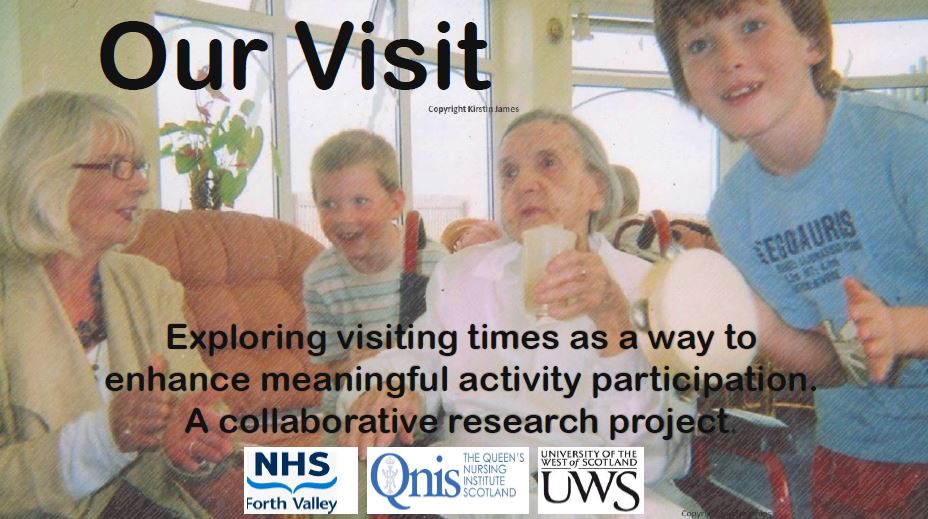What was the issue that required change?
Older people with dementia suffer significant health inequalities compared to those without a dementia diagnosis, including poorer outcomes from a hospital stay. Research has shown that participating in meaningful activity creates improved conditions for health.
This study is based in NHS Forth Valley, and sees community nurses working alongside colleagues from the University of the West of Scotland and the Community Hospital’s Carers Group. It aims to co-create an innovative community hospital-based intervention – Our Visit – to improve activity participation of older people with dementia with their care givers.
How did you tackle it?
Professional carers took part in some focus groups to see how visiting time might be positively used by visitors. Sadly, despite significant attempts, no family carers took part. Items such as packs of cards, games, pens and papers, and a therapy doll were taken into the first focus group to stimulate dialogue about and around how these or similar objects might add to, or take away from, activity participation.
What was the outcome?
Developing an understanding and a way of enhancing visiting time has the potential to improve the conditions for health both for people with dementia and their care givers. Outcomes from this project will catalyse larger studies of visiting, not necessarily limited to hospital environments.
Participatory engagement in meaningful activity, as ‘Our Visit’, has the potential to benefit people with dementia, their families and the professionals who work with them. Visiting time may be an opportune moment for this, and meaningful objects, especially therapeutic dolls, may provide a valuable focus and stimulus for activity participation.
The final report is available here.
